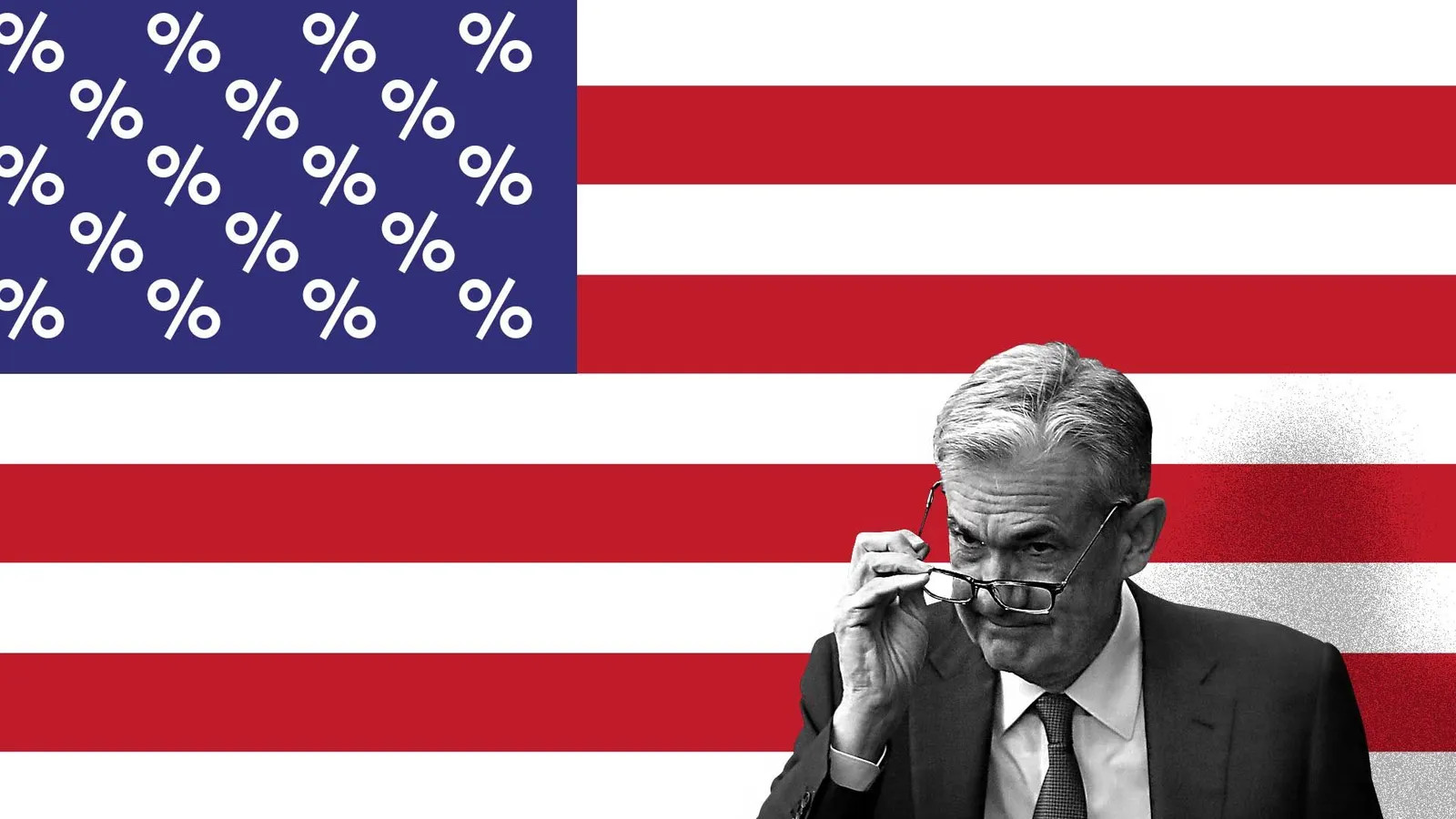
OVERVIEW
MANAGEMENT
PERFORMANCE
POSSIBILITIES
CAPITALS
ACTIVITIES
ACTORS
BURGESS
|
HEADLINE NEWS
AXIOS MACRO About the Federal Reserve ... March 2023 
Jay Powell standing in front of a U.S. flag with the stars replaced by percent signs ... Illustration: Lazaro Gamio/Axios Original article: https://www.axios.com/newsletters/axios-macro-1c281dab-3d55-4ac6-8955-e66df310dc16.html Open PDF : 2015-Has-the-US-Economy-Become-Less-Interest-Rate-Sensitive-24193.pdf Peter Burgess COMMENTARY Peter Burgess | ||
|
Axios Macro By Neil Irwin and Courtenay Brown · In one of the weirdest moments in the history of central bank communication, a virtual speech by Federal Reserve governor Christopher Waller yesterday was canceled after someone on the video call showed pornography. The text of the speech was still released, however, and is quite important. It shows that Waller (and presumably his colleagues) are eagerly awaiting jobs and inflation data over the next two weeks to discern whether January's run of hot growth and inflation numbers was a fluke or a worrying trend. 📑 Situational awareness: Hot off the press is the Fed's semiannual monetary policy report. We'll unpack it Monday in advance of appearances by chair Jerome Powell before Congress on Tuesday and Wednesday. Today's special super-sized edition of Macro, edited by Kate Marino, looks at why rate hikes haven't affected the economy more. It's 786 words, a 3-minute read. 1 big thing: The surprising impotence of Fed rate hikes Since the Fed began raising interest rates a year ago this month, the central bank has moved more aggressively than nearly anyone expected at the time. It has raised target interest rates by 4.5 percentage points, with more to come, and shrunk its balance sheet by more than $600 billion. Yet the economy remains as robust as ever, with a five-decade low in the unemployment rate, and inflation still far above the Fed's goals. Why it matters: Something strange is going on when the Fed can tighten that much to achieve that little in terms of bringing down demand — and it raises important questions about the Fed's ability to accomplish the price stability goals it is assigned. It is the mirror image of the situation from the 2010s, when extraordinary monetary stimulus never could get enough traction in fueling more robust demand and higher inflation. State of play: There is little doubt that the Fed's actions have affected financial markets, given last year's steep drop in the stock market and higher rates on corporate bonds and mortgages. And in a few sectors, mainly housing and technology, you can see evidence of those tighter financial conditions flowing through to layoffs and less activity. But across the broad swath of the economy, no such luck, as consumer demand and overall hiring have remained extraordinarily healthy. What they're saying: When Neil asked chair Jerome Powell about the narrowness of the economic response to higher rates at a November news conference, the Fed chief emphasized the strength of the job market and consumer balance sheets entering this period. 'We go into this with a strong labor market and excess demand in the labor market … and also with households who have strong spending power built up,' Powell said. 'So it may take time, it may take resolve, it may take patience.' Yes, but: The fact that four months later, there are precious few signs of a meaningful slowdown, and the fact that interest rate policy seemed to pack little punch in the last economic cycle (albeit in the other direction) makes us think something else is afoot. Indeed, research conducted during that era pointed to long, slow-moving trends causing interest rate moves to have less of an impact than in the past. Flashback: A 2015 paper by Jonathan L. Willis and Guangye Cao of (at the time) the Kansas City Fed explored many potential factors.
In the old days, tighter money from the Fed not only meant higher borrowing costs, but often meant banks faced a shortage of funds to loan out, so they would tighten lending and throttle credit in the economy. 2. One more thought on Fed futility Jeff Bezos, with Kendall Jenner and Jared Leto at the 2019 Met Ball. 
Kendall Jenner, Jeff Bezos, Jared Leto, and a model of Jared Leto's head at the 2019 Met Gala. Photo: Kevin Tachman/MG19/Getty Images for The Met Museum/Vogue We'll offer another theory that's more speculative. An important channel through which monetary policy affects the economy is the wealth effect — when asset prices rise, people spend more, and when they fall, they spend less. But higher wealth inequality might just change how much that channel affects overall spending in the economy. Let's imagine a stylized example. In a hypothetical country, there are 1,000 people who each have a $100,000 net worth. If the value of their portfolio falls 20% because of tighter monetary policy, they would probably all cut back on their spending. But in a country where 999 people have zero net worth, but one person is worth $100 million, the effect would probably be different. Falling asset values wouldn't affect the 999 poor people, and the one rich person is so rich they probably wouldn't cut their spending, either. Between the lines: Obviously, the United States is not as radically unequal as that hypothetical. At the same time, consider this: Jeff Bezos's net worth has fallen by 35% over the last year, according to the Bloomberg Billionaires Index, shaving $61 billion off of his net worth. Fed policy is a major factor in that drop. But given that he's still worth $116 billion, do you think he has cut back his spending as a result? We don't. -------------------------------------- A MESSAGE FROM PANASONIC Driving the future of sustainable transportation As the leading electric vehicle (EV) battery manufacturer in North America, Panasonic continues to build on decades of battery expertise and technology innovation in the service of creating a greener, more equitable future. Learn how we’re advancing the EV industry. Deepening our commitment to sustainability Panasonic is helping lead the changes necessary to address the climate crisis. Here’s how: From creating more sustainable business practices, products and solutions to helping our customers integrate sustainable technologies in their projects. ---------------------------------- Axios, 3100 Clarendon Blvd, Arlington VA 22201
| The text being discussed is available at | https://www.axios.com/newsletters/axios-macro-1c281dab-3d55-4ac6-8955-e66df310dc16.html and |